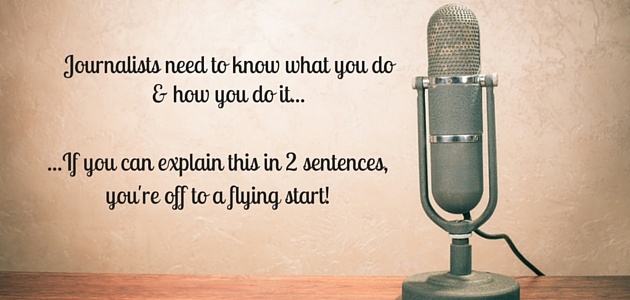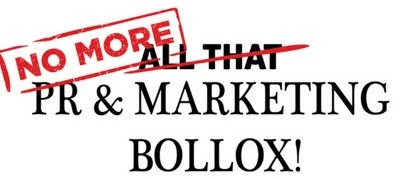

If you’ve been following this blog so far, I hope I’ve made it clear that the amount of effort that goes into getting your brand or company noticed has shot way up in the past decade. Before you even think about traditional press coverage, you need to be thinking about the discoverability of your website as well as content creation and amplification.
That said, the upside of all this added effort is that once you’ve done all the work, the odds that a journalist will want to talk to you—without you doing any direct or conventional PR— will also increase significantly. Should that happen, you’d be foolish not to seize the opportunity. However, it’s important you don’t undo all your hard work by giving a less than impressive interview. Whether you can afford media training or not, proper preparation is key.
The most difficult question you can be asked is often, “Just tell me a little bit about your company.”
We’ve spoken in previous blogs about the ‘Ronseal Moment’ of ‘explaining exactly what it is that you do, succinctly, clearly and without the need for 45 PowerPoint slides. This is an important piece that you need to consider, rehearse, and have ‘off pat’. The receiving journalist needs to know what you do, how you do it and the scale or size of your business. If you can do all of that in one or two sentences maximum, you are off to a flying start.
Carve out time to pause and think before giving an answer
First things first, when you get a journalist expressing interest in speaking to you, or someone from your company, know that you do not have to answer their questions immediately, on the phone or by email. The best practice is to ask when their deadline is, what their enquiry is about, and tell them you will get back to them later in the day (if the deadline allows this). This avoids you being rushed and giving answers on the fly without adequately preparing your key messaging and doing your due diligence. Even if they need comment ASAP, tell them you will have something to them within the hour, and hang up the phone so you can think about what you will say.
Do your due diligence
Once you have fielded a journalist request, do a little research on who they are. Every journalist should have an online portfolio, Twitter account, or author profile page on a publication’s website, which will help you understand if your industry is something they regularly write about and which other publications they write or have written for. If you’re not aware of the publication they are writing the piece for, make sure you research that as well. In addition, be sure to note if they’ve written about your company before (and if so, read up on the articles!). If you can’t find any information about this journalist online, it’s entirely reasonable to ask them for some background information.

It’s important to understand just why a journalist wants to write about you and it’s perfectly practical to ask them to send you a paragraph explaining their angle/approach for the story. While journalists usually prefer not to send questions ahead of time (though you can ask), you can ask if you’re being approached as an industry expert, a competitor, or you are going to be the main subject of the story.
What are your key marketing messages?
Once you know the angle and context of the story, prepare your three key messages. These are the things you know you want to cover in the interview and will come back to if you feel flustered or the conversation goes astray. Preparing these ahead of time will mean you will have an interview game plan and will be more likely to integrate these messages into whatever answers you provide to the journalist’s questions.
Lastly, understand that fundamentally the journalist is coming from a position of privilege. While they are not necessarily a shark out to get you, they also are not obliged to write favourably about you—or include you in their story at all—despite you giving your time to speak to them. Being earnest in your attempt to give them useful facts, unique insight, and actually endeavour to answer their questions will increase the odds of you being treated fairly and in a way that’s helpful to your company.
Tip #20: Always accept traditional media coverage when it comes your way, but do your due diligence and prepare ahead of time.
If you'd like to receive the latest 'All that PR & Marketing Bollox...Explained!' straight to your inbox every week, you can subscribe below.




Submit a Comment